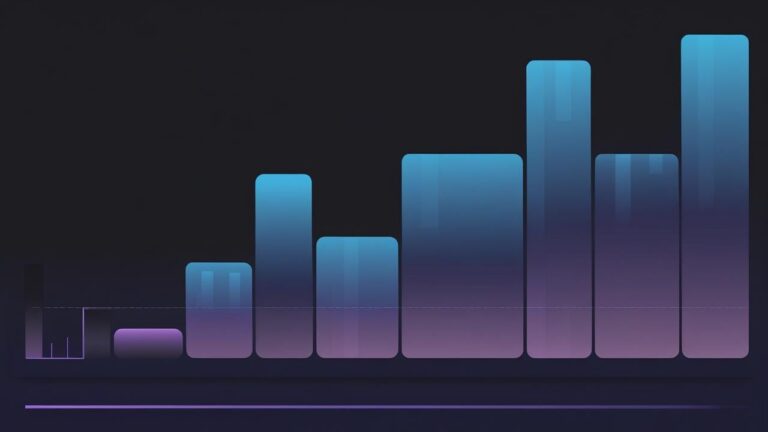We all know that SEO is important for a website’s online visibility, but where the confusion comes in is what factors are the most important for driving your content marketing and SEO strategy forward. With over 200 factors that Google uses in their algorithm, it’s easy to be susceptible to internet chatter and misinterpret which ones will move the needle for your content.
While most myths like the Lockness Monster or humans only using 10 percent of their brains are harmless, SEO myths could cause your brand to waste time and resources on the wrong strategies.
Don’t worry, we’re here to set the record straight and set your brand up for success when it comes to improving online visibility and traffic. Below, we’re debunking 18 common SEO myths that people still believe are true.
How Much Do You Know About SEO? Debunking 18 SEO Myths with Facts
The evolving landscape of SEO and search can be filled with rumors and speculation on what works and what doesn’t. Read on as we reveal common myths and their truths.

SEO Myths and The Facts
Setting the record straight on 18 common myths.
#1 Myth: Google penalizes duplicate content
Truth: Google doesn’t impose a duplicate content penalty on web pages with duplicate copy; however, it can still harm your SEO strategies.
#2 Myth: The Google Sandbox
Truth: While some think that Google automatically suppresses new websites on the SERP for a period of time before they are able to rank well, this is not the case.
#3 Myth: PPC advertising helps rankings
Truth: While PPC can help generate website traffic, Google will not favor websites that spend money through PPC advertising.
#4 Myth: Domain age is a ranking factor
Truth: The age of a website does not determine how well it can rank. However, it is true that an older website has more time to rank well.
#5 Myth: The number one position gets all the traffic
Truth: The number one result in Google gets approximately 32% of all clicks
#6 Myth: Longer content is better
Truth: Long content doesn’t always mean good quality. Content that best satisfies search intent will perform well, despite the length.
#7 Myth: SEO takes 3 months
Truth: It is true that some changes will take time for search engine bots to process; however, that doesn’t mean your work will have no impact until 90 days.
#8 Myth: All links on a page have equal ranking value
Truth: All links are not made equal. Google will place different values on links based on their type, placement on the page, anchor text, and content around the link.
#9 Myth: Bounce rate impacts rankings
Truth: Bounce rate doesn’t directly affect organic rankings. It will, however, indirectly impact other important factors like slow page speed, poor mobile experience, etc.
#10 Myth: Keyword stuffing improves rankings
Truth: Adding too many keywords to a post can actually negatively impact your rankings.
#11 Myth: Outbound links are bad for SEO
Truth: Including outbound links from your website to another’s can help add value, build a reader’s trust, and strengthen topical signals for your content.
#12 Myth: PPC is needed for conversions
Truth: Quality content that answers a question around a product or service can organically lead to conversions without the need for pay-per-click advertising.
#13 Myth: Google prioritizes domain authority
Truth: The domain authority of a website is not a ranking factor, but it’s a good way to gauge your website’s performance and if your strategies are following best practices.
#14 Myth: Adding more keywords to URLs will help
Truth: Cramming keywords into a URL can have a negative effect. A good rule of thumb is to make URLs for users first.
#15 Myth: Google does not reveal its algorithm for ranking factors
Truth: Google has been vocal about new algorithm updates with regular documentation, blog posts, tweets, and more. Google Search Guidelines can also be easily accessed on the web.
#16 Myth: Authoritative websites will always rank higher
Truth: Google will reward content that most accurately satisfies the search, even if it is not the most authoritative
#17 Myth: Good content equals good rankings
Truth: Just because a piece of content is good does not mean it will automatically rank well or bring in traffic on the search engine. Content must be strategic and optimized for the SERP in order to rank well.
#18 Myth: You shouldn’t touch content after it’s published
Truth: Continually improving your pages and refreshing content can help it stay relevant and competitive on the SERP.

Here’s one more truth. Many brands don’t know where to start when it comes to SEO. It all starts with knowing what and who to trust when it comes to improving your brand’s visibility, rankings, and traffic.
At RevenueZen, our SEO experts are here to help you decipher fact from fiction and deliver the most effective strategies to take your business to the next level without being full of $&*@. Check out our growth marketing services to help your company reach the first page and its full potential.




